Supporting Parents with Dementia
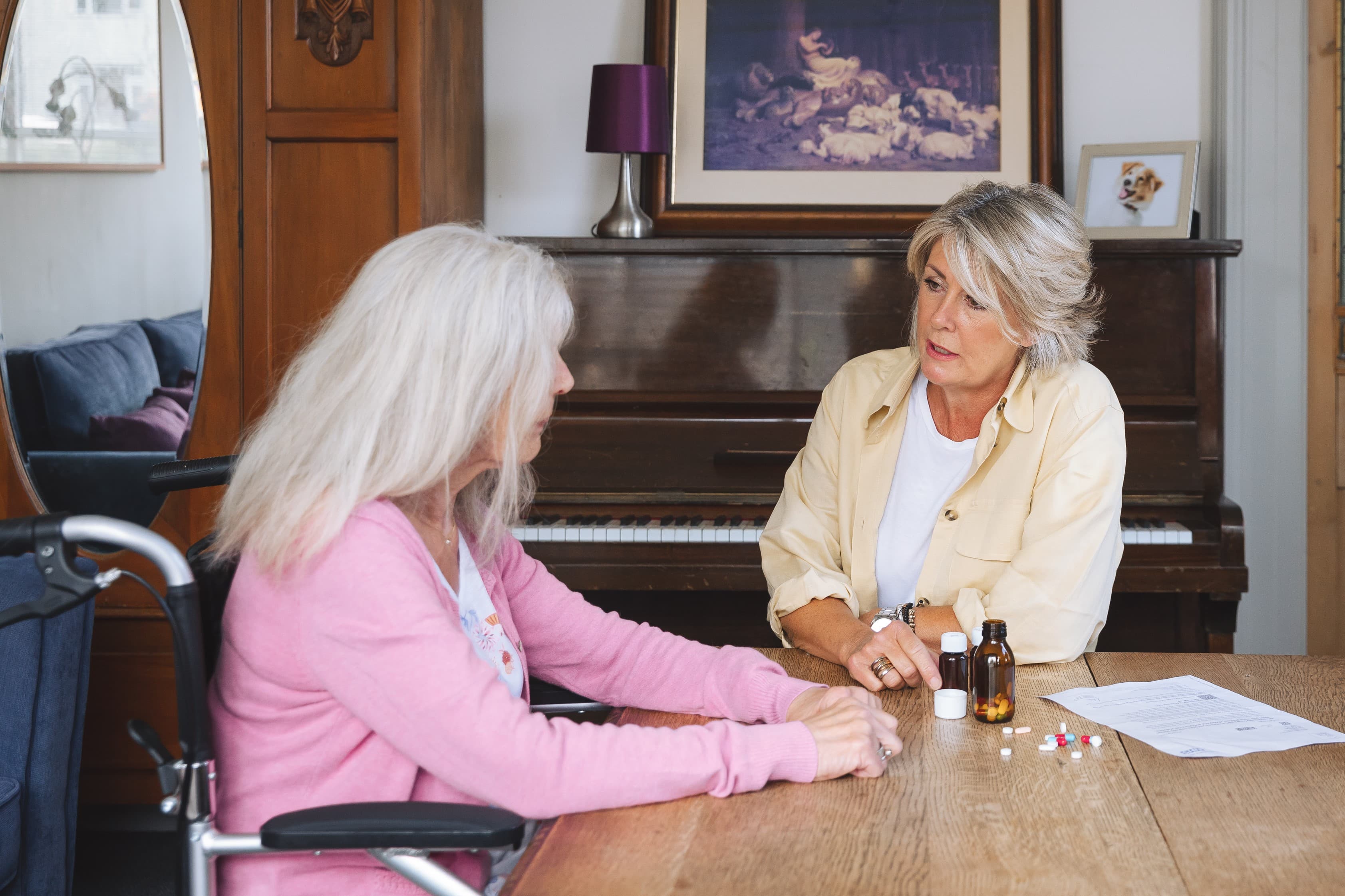
What is Dementia?
The term dementia refers to a group of symptoms such as memory loss, confusion, difficulty with communication and changes in mood or personality.
They are caused by damage to brain cells, affecting the cells’ ability to communicate with each other. The most common and best known underlying cause is Alzheimer’s Disease but others include vascular dementia, Lewy body dementia and frontotemporal dementia.
We offer a more detailed guide to types of dementia here: Understanding Dementia

What prompts a care enquiry?
Home Instead conducted a survey across our network to ask what most frequently prompted families to enquire about dementia-related care. The results are not particularly surprising but do reinforce what those with elderly parents need to look out for; here are the highlights:
- Top of the list came memory loss – is Dad repeatedly misplacing important items like keys, forgetting appointments or repeating himself?
- Are Mum’s standards of personal hygiene slipping – no longer bathing or showering often enough or neglecting hair and nails?
- Is medication being taken when it should, or is Dad forgetting or getting muddled?
- Is Mum still eating three nutritious meals a day and keeping herself hydrated, or is she losing weight and possibly showing signs of dehydration?
- Is Dad still safe in the house – does he turn off kitchen appliances and lock doors?
- Is Mum constantly repeating herself in conversation?
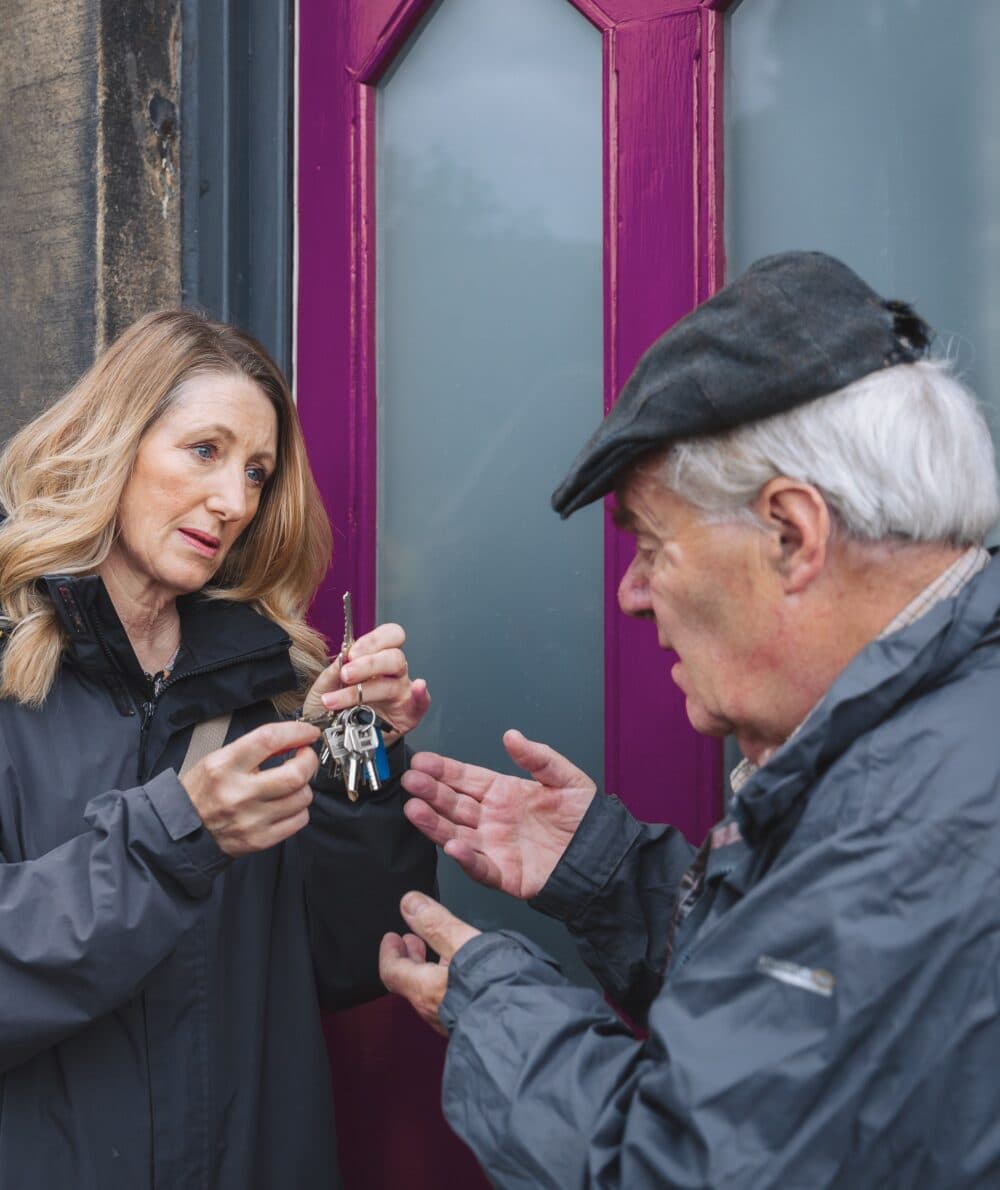
Spotting the signs of dementia
Dementia can be difficult to spot, especially in the early stages, but understanding the signs can make all the difference. As above, the most common signs in our experience relate to memory, confusion and sequencing everyday tasks.
Our short video below illustrates a few signs you might see.
How Many Signs Did You Spot?
Set out opposite are some of the signs of dementia that you might have noticed.
Those small changes in behaviour, or small changes at a loved one’s home, could indicate a need for support to enable them to continue living safely and comfortably.
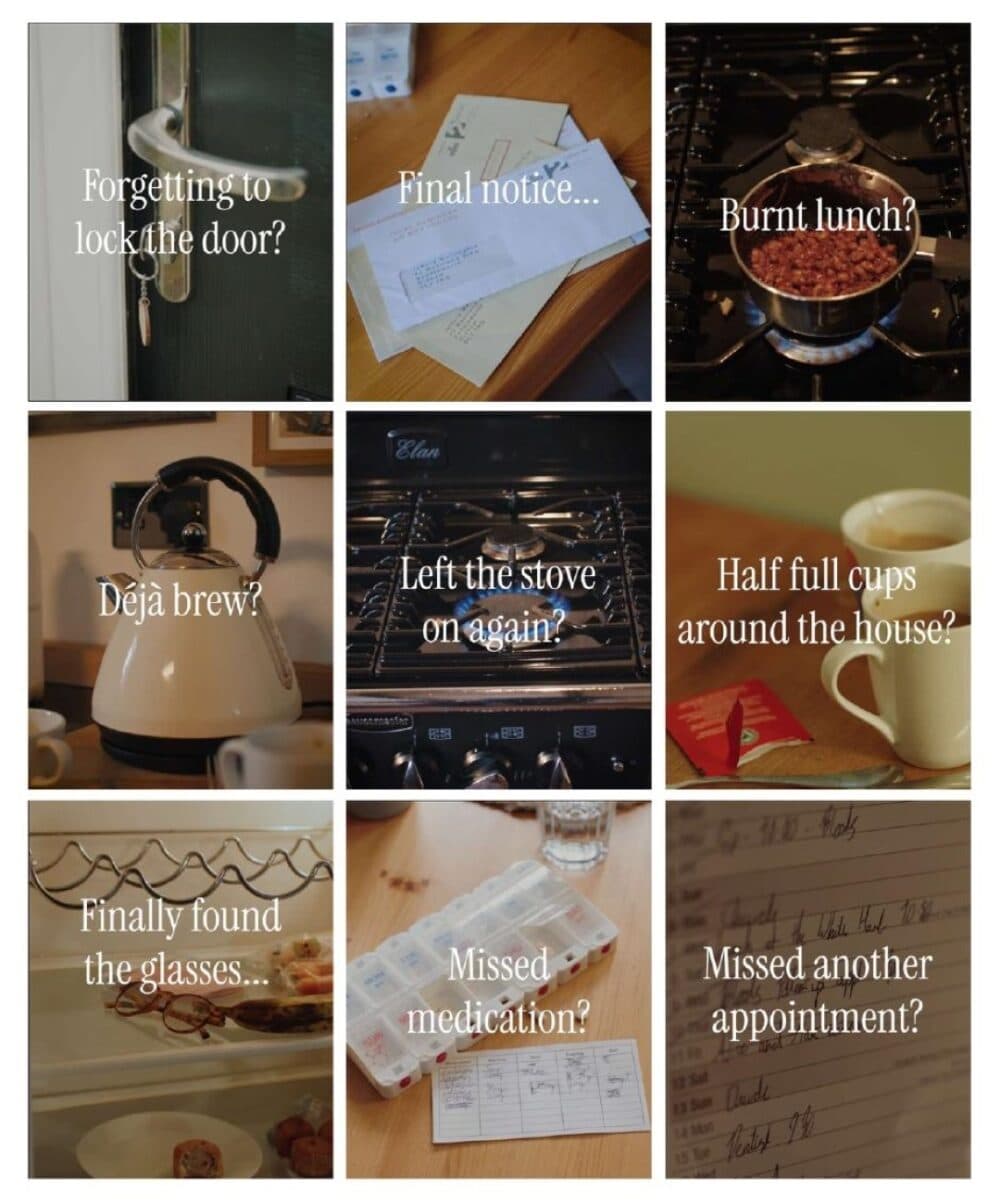
The Care Conversation
Having identified that Mum or Dad needs some form of care support, the next stage can be the most challenging – we call it having the Care Conversation with your parent, to broach that very sensitive topic that most elderly people would like to avoid.
Many families contact us looking for support for a loved one, only to be frustrated by denial, rejection of the support on offer and increasingly challenging behaviour.
To help families navigate this stage and explore which next steps would best suit all involved, we offer a downloadable guide to the Care Conversation and a downloadable Spot the Signs checklist. The checklist outlines the key behaviours to look out for and whether it might now be appropriate to start looking at care options. Just as importantly it also asks how you are doing – are you feeling emotionally and physically well? because the answer could rub off on your loved one.
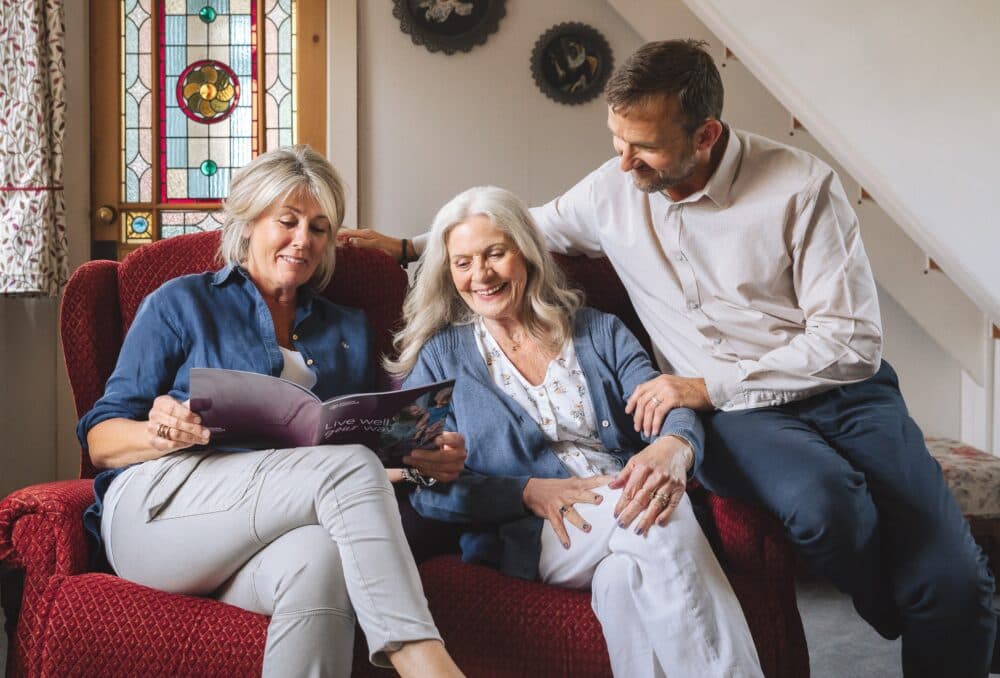
A Stitch in Time ...
We encourage families to look for signs before they are impossible to ignore, and to have the Care Conversation earlier rather than later; in this way they can hopefully avoid a crisis point when Mum or Dad has had a fall or been admitted to hospital and care becomes an emergency purchase.
We are always happy to enter into early discussions with families to discuss options, give them ideas or strategies, and offer the benefit of our experience.
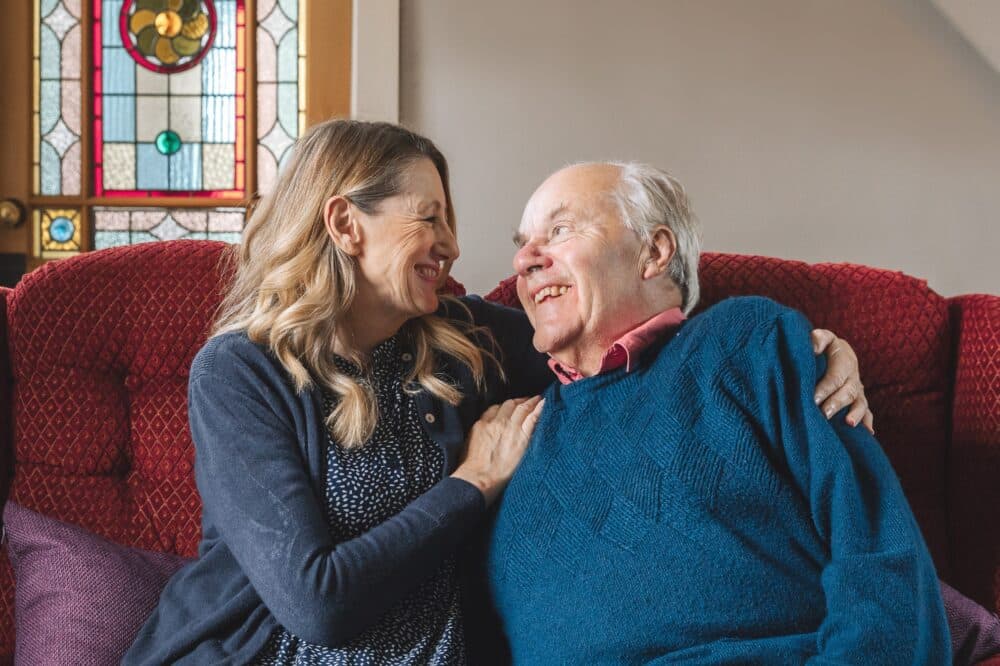
Ongoing Support for Families
It’s not easy for families, and they will be looking for more information to help them understand the situation and what to expect on their dementia journey. One way that we offer much needed support is through our YouTube channel Home Truths, which is packed with personal stories, tips and advice from experts and people with first hand, lived experience.
Through content which is heart-felt, emotional and sometimes amusing we aim for Home Truths to provide a very watchable way to find the answers that many families will be seeking.
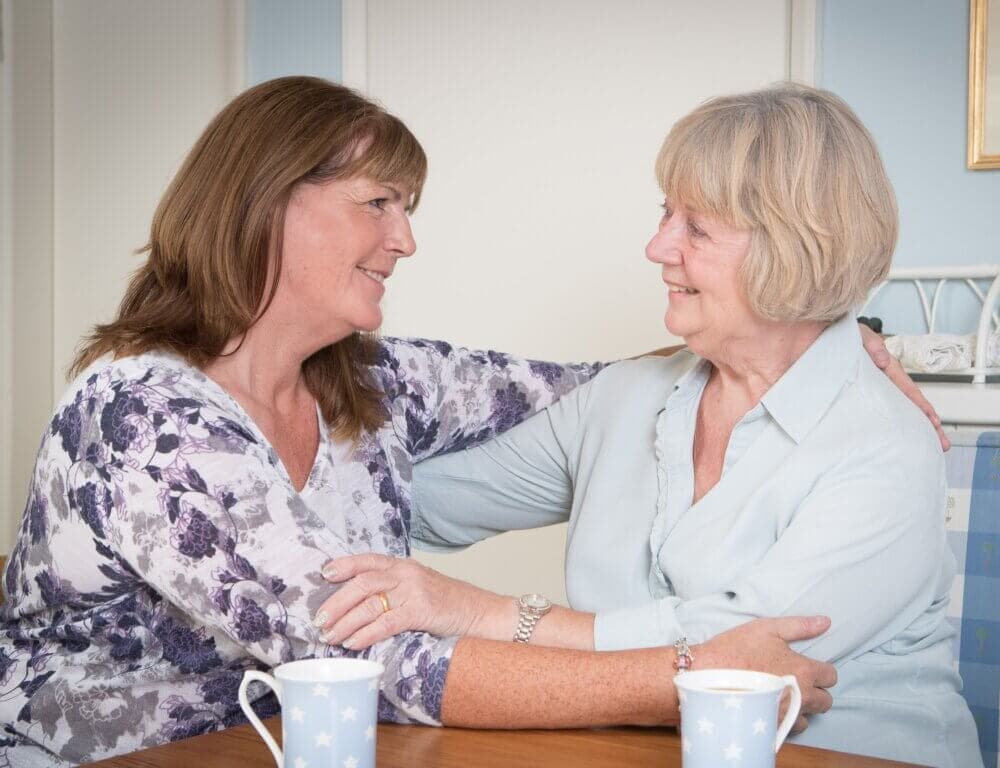
Some Practical Tips for Family Carers
We offer some tips for caring for a loved one living with dementia:
- Create a safe environment, eg by addressing trip hazards, ensuring good lighting and removing dangerous items like cleaning products
- Establish consistent daily routines and break tasks into simple steps
- Speak clearly and calmly, in simple sentences, be patient and give time to respond,
- Offer guidance rather than options but encourage independence wherever possible
- Try to understand causes of distress and use distraction techniques to address agitation
- Engage in activities your loved one enjoys and use music and reminiscence to evoke positive memories. You might like to consider our Let’s Move sessions for fun seated exercise to music or and our Let’s Sing sessions for singing therapy and opportunities for family carers to meet up.
- And finally, take care of yourself, both physically and mentally, because if you are under the weather it will rub off on your loved one.
We are always happy to discuss concerns, ideas and options with families to help them cope with the dementia journey.
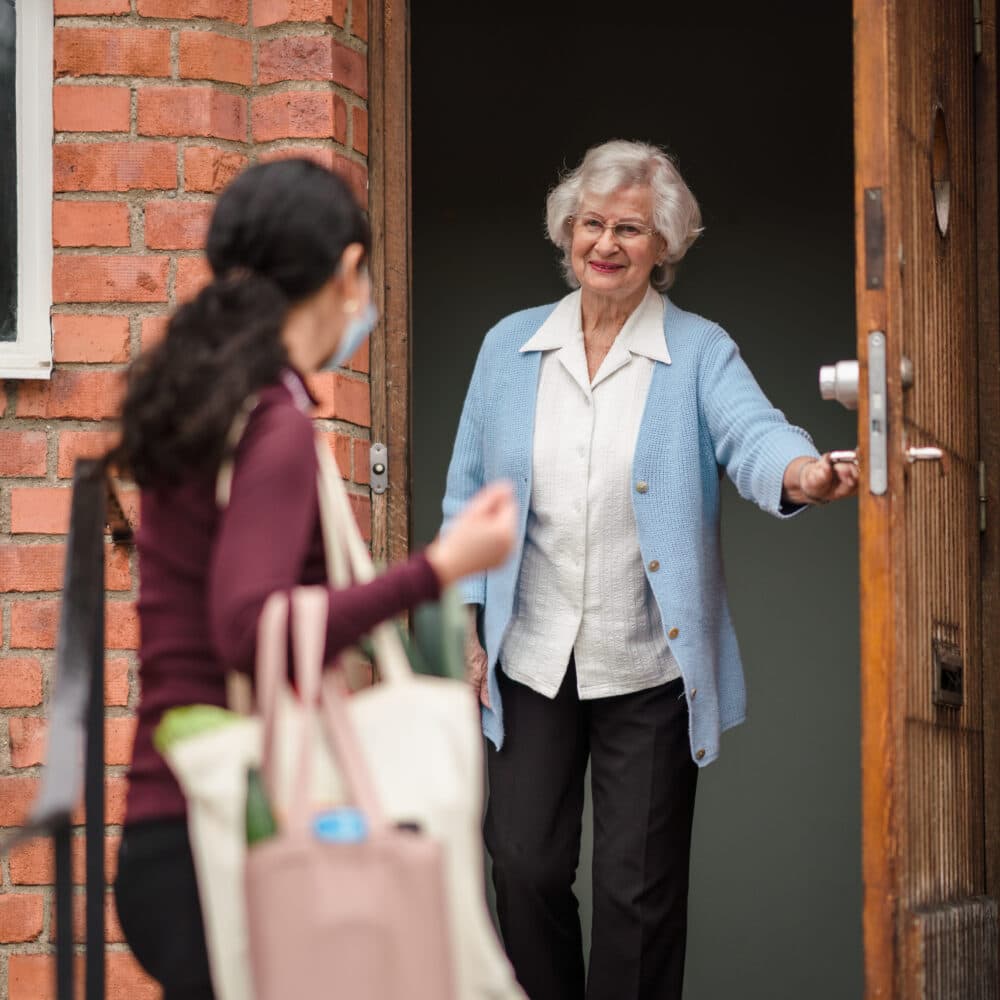
Experience the Home Instead Basingstoke difference with our exceptional home care services. Give yourself or your loved one the gift of comfort, companionship and independence.
If you’d like to find out more about our visiting or live-in home care services please give us a ring on 01256 840 660, email us at [email protected], visit: Home Care in Basingstoke or click on the enquiry button below.